Ashes 2015: Cook's future, Root's potential and Boycott's insecurities
- Published
Michael Vaughan interviews Mike Brearley
The Ashes 2015 |
|---|
Dates: Five-match series starts on 8 July in Cardiff |
Coverage: Don't miss a ball on BBC Radio 5 live sports extra and the BBC Sport website |
England need the flair of their younger batsmen to win an Ashes series, says ex-skipper Mike Brearley.
The 73-year-old, who guided England to three Test series wins against Australia, believes their "exciting" crop of young players are the key.
Brearley, captain in 31 Tests from 1977-81, said Alastair Cook is "decent, straightforward and honest", but added: "I'm not sure how much flair he has.
"Can you win the Ashes without that flair? No."
He added: "One of the exciting things is the flair in the young players from number five to number eight - Joe Root is a terrific player, Ben Stokes, Jos Buttler and Moeen Ali."
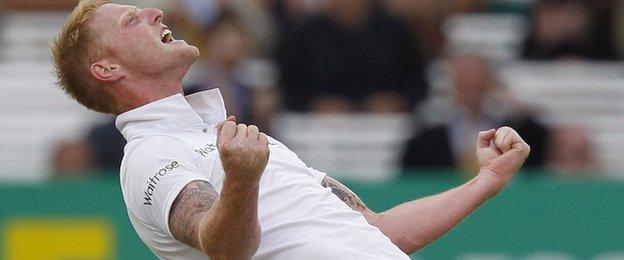
Ben Stokes hit the fastest Test century at Lord's against New Zealand last month before taking three wickets
By winning in 1977 and 1978-79, Brearley was the last skipper to lead England to home and away Ashes success until Andrew Strauss, more than 30 years later.
His most famous win came when he returned to the captaincy part way through the 1981 series, leading his country to a 3-1 victory over Australia.
As the 2015 series approaches, Brearley has been talking to Michael Vaughan - an Ashes-winning captain in 2005, external - about the challenges facing Cook's side, and the demands of leading your country.
'Australia are better than us'
After losing 5-0 down under in 2013-14, England are seeking to regain the Ashes this summer, but Brearley feels they may struggle.
He said: "Australia are a very tough team. On paper, they're a better team than us. They've certainly got better bowling than we have.
"But we're playing at our home grounds, which makes a difference. If we can get that spirit going, and people play to their best, then we've got a chance."
'Cook's break will have done him good'
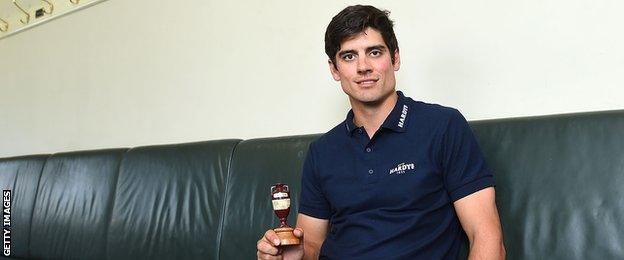
Alastair Cook said recently that winning this summer's Ashes would be the greatest achievement of his career
England's Test captain Cook was replaced as one-day skipper by Eoin Morgan, external last December, and left out of their World Cup squad earlier this year.
"There's an advantage for Alastair Cook in not having played in the World Cup and the recent one-day matches," Brearley said.
"He's been able get away, reorganise, remind himself of his technique and come back fresh.
"But it will be difficult for him if things don't go well to start with - and if he doesn't feel he's got the same spirit that the team have had in the one-day matches recently, and if he doesn't quite feel in charge."
'Cook is not a big extrovert'
Brearley sees Cook as one of England's quieter captains - but does not view that as a problem.
He said: "Alastair Cook is not a big extrovert. He's not somebody who is going to change things in dramatic ways.
"Tony Greig [Brearley's predecessor as England captain from 1975-77] was a bit like that. He was a 6ft 5in blond-haired South African, who made big gestures, who reacted to the crowd, who said things to the opposition, who stirred up Dennis Lillee.
"I don't think you have to be like that. One of the important things as captain is that you have to be yourself.
"I think Alastair Cook is a leader who is conscientious, he works at it, he's fair-minded to the players."
'Root could be a future England captain'
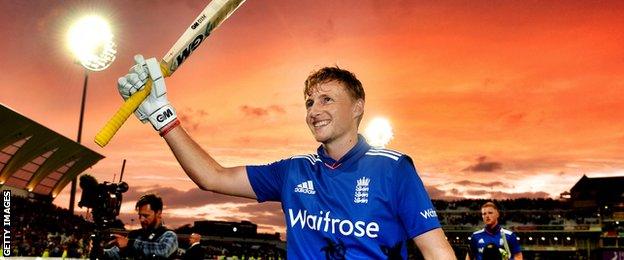
Joe Root was named England's player of the year by cricket journalists in May
He currently averages 54.11 after 27 Tests and Root's performances at number five have impressed Brearley to the point that he feels the 24-year-old Yorkshireman could lead his country in future - if he is not pushed too soon.
"I think he'd manage it, but I think he might be helped if it doesn't come too soon," Brearley said. "Let him get a few more thousand runs in a very few years for England at number five or possibly number four.
"If you were going to do it, it would have to be on the basis that, if it failed, don't keep him on too long - get him back to being what he's best at.
"But he's lively. I think he'd do a good job."
'There's no such thing as a perfect captain'
Asked by Vaughan to define his perfect captain, Brearley said: "There isn't one. There are all sorts of styles. The perfect captain does it his own way, but is open to ideas as to how to change, always.
"You've got to be able to get on with the team. That doesn't mean being matey with them all the time, because you've got to say tough things to people, that they don't want to hear.
"So you want someone who is pretty strong in themselves, and has a sense of humour, can see things that they do wrong, and is passionately involved."
'I was cerebral to a fault'
Brearley captained both Middlesex and England, but had interests outside cricket too, working as a philosophy lecturer at Newcastle University in the late 1960s and forging a post-playing career as a psychoanalyst.
"Captaincy is about about talking to people, listening to people," he said.
"People used to say I was cerebral, and maybe I was to a fault. But I was also quite passionate. I minded.
"Sometimes that showed in good ways. Sometimes it showed in not so good ways. But people knew that I cared."
'I was an early data analyst'
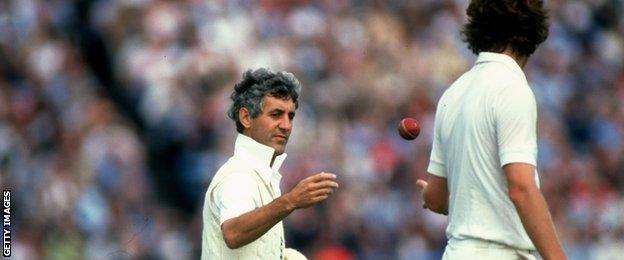
Mike Brearley captained Middlesex between 1971 and 1982
Data analysis is now common across the sporting world, but Brearley's self-confessed academic approach to the sport drove him to look for advantages in facts and figures as far back as his first days as Middlesex captain in the early 1970s.
He said: "The tactical side originally came from my father. I was extremely interested in tactics, sometimes to a fault. It became a bit academic.
"For example, in my first year of captaining Middlesex, I'd look through Wisden to see who batsmen had got out to against us in the previous year's match. I think that was completely stupid.
"I was using data to that extent, but perhaps misguidedly. It can go right or wrong, can't it?"
'I wanted a team with 11 captains'
Brearley, who captained England in 31 of his 39 Test matches, was renowned for his man-management skills, with Sir Ian Botham declaring him "the best captain I ever played under".
"I wanted a team with 11 people who were potentially captains, who were thinking like captains about the whole game, and about other people's games as well as their own," Brearley said.
"That makes life a bit more difficult. You get arguments, you get debates, people have opinions. Sometimes you get fed up with them, and you don't want to hear another opinion, especially if it's different from yours. But to get a team together, I think that's vital, actually."
'Boycott needed reassurance'
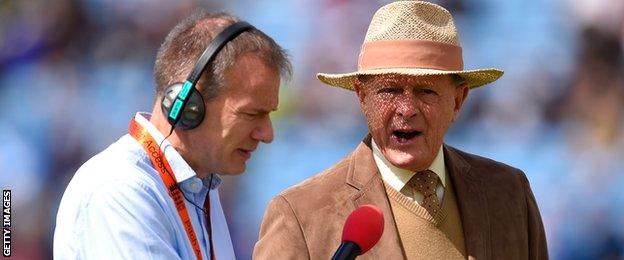
Geoffrey Boycott now offers forthright opinions as part of the BBC's Test Match Special team
Opening batsman Geoffrey Boycott - who captained England in four Tests in 1978 when Brearley was injured - developed a reputation for high self-confidence that masked insecurity, according to Brearley.
He said: "Someone such as Geoffrey Boycott - a very fine, great player - needed encouragement and reassurance. More than you might imagine, especially if he wasn't doing so well.
"He'd want to know, for example, that the ball that had just got him out would have got WG Grace, Donald Bradman and all the rest of them out too - that he hadn't done anything wrong.
"But he also wanted to be reminded that he had to go his own way, and be positive in defence as well as occasionally in attack."
'We almost dropped Bob Willis in '81'
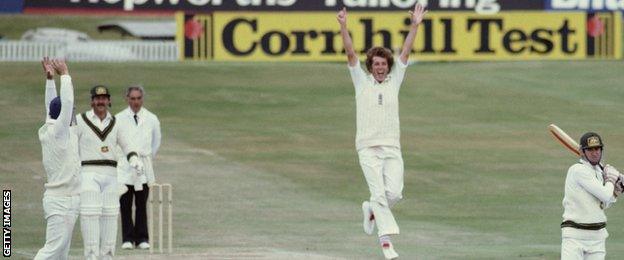
Bob Willis's 8-43 helped ensure England won the third Ashes Test at Headingley in 1981
While all-rounder Botham is regularly cited as the key figure in England's 1981 Ashes series victory, external over Australia, fast bowler Bob Willis played a major part - particularly as the third Test was won at Headingley, taking 8-43 as Australia were bowled out for 111 in their second innings.
Yet he almost did not make the side, having struggled for form in the lead-up to the match.
Brearley said: "He wasn't very fit. He had a chest infection. He had a bit of trouble with bits of his body. He was getting on a little bit, in terms of age, as a fast bowler, and he started to bowl no-balls.
"We nearly left him out of that Headingley Test when he took 8-43. Amazing, isn't it?
"He hadn't played in a match the week before for Warwickshire. We didn't select him for the team. Luckily, he found out and said: 'What do you mean, I'm not fit? I'm perfectly fit. I was just having a match off to be fit for the next match.' It was as close as that."
'I used to wind up Botham'
"Captaincy is people skills," Brearley said. "It's about finding out what makes people tick, what motivates them.
"People such as Ian Botham were good when you geed them up. I'd get someone such as Peter Willey at mid-on or mid-off, and I'd say: 'Stir him up.'
"Peter would sneer at Botham and snarl at him. He'd say: 'You're bowling like an old woman.' Botham would come in and bowl with a bit more energy, which was good.
"But if you did that with Bob Willis, he might be more unconfident. I realised that after a while."
'Botham was easy to manage'
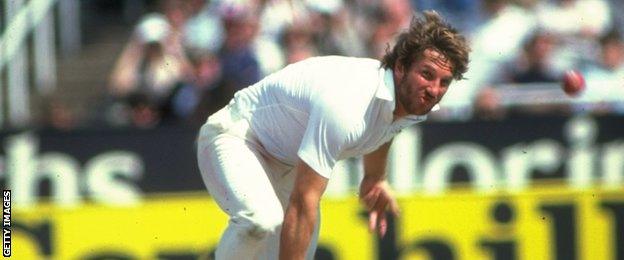
Sir Ian Botham was replaced as England captain by Brearley after two Tests of the 1981 Ashes series
Botham, who played 102 Tests from 1977-92, was involved in a number of controversies during his playing career, but Brearley said he had few problems with the all-rounder.
"Ian Botham, when I had him at the beginning of his Test career, was pretty easy to manage," Brearley said.
"He was so talented. He was so extroverted and confident. He had his anxieties, but he was confident once he got on to the field.
"He was so attacking in terms of his mentality - and that was almost always right for him. Just occasionally, you needed to quieten him down."
'Pietersen needed controlling'
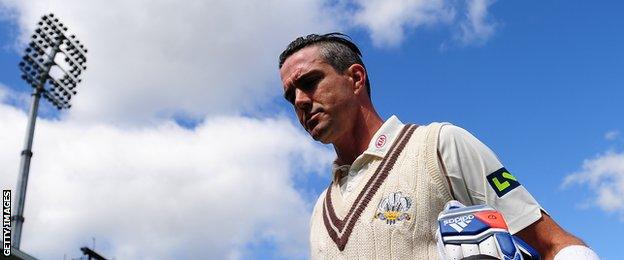
Kevin Pietersen was released from his England central contract in February 2014
Kevin Pietersen was effectively sacked by England shortly after their 5-0 Ashes defeat in Australia in 2013-14, amid suggestions of dressing room disharmony.
Brearley wondered if the situation could have been handled better by his fellow senior players, saying: "One thing I've wondered about the England team is this: Might they, as a team, have done more to confront Kevin? To enlist him but also confront him - and not let him get away with any nonsense.
"I'm not saying that Geoffrey Boycott was that difficult a player to handle, but the rest of the team knew him very well by the time I played with him in Test matches, and weren't going to let him get to that awkward hectoring state of mind that he can get in to."
- Published29 June 2015
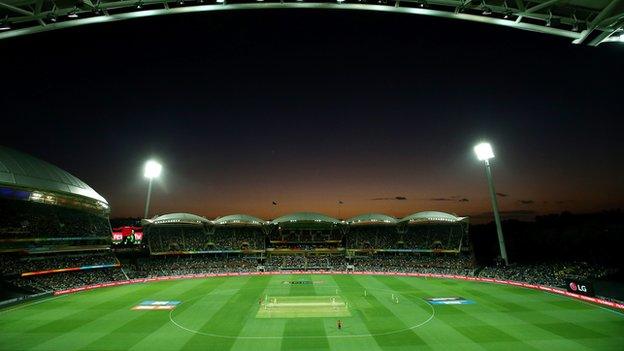
- Published29 June 2015

- Published7 July 2015
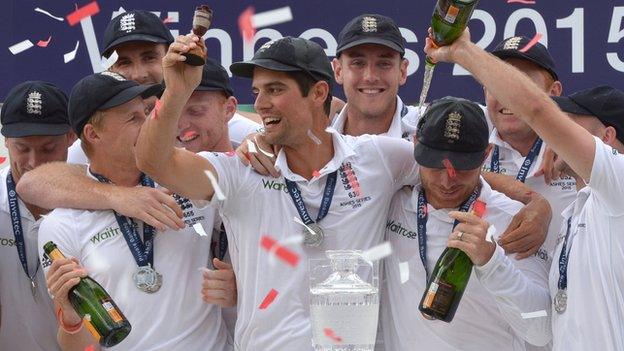
- Published29 June 2015

- Published10 March 2019
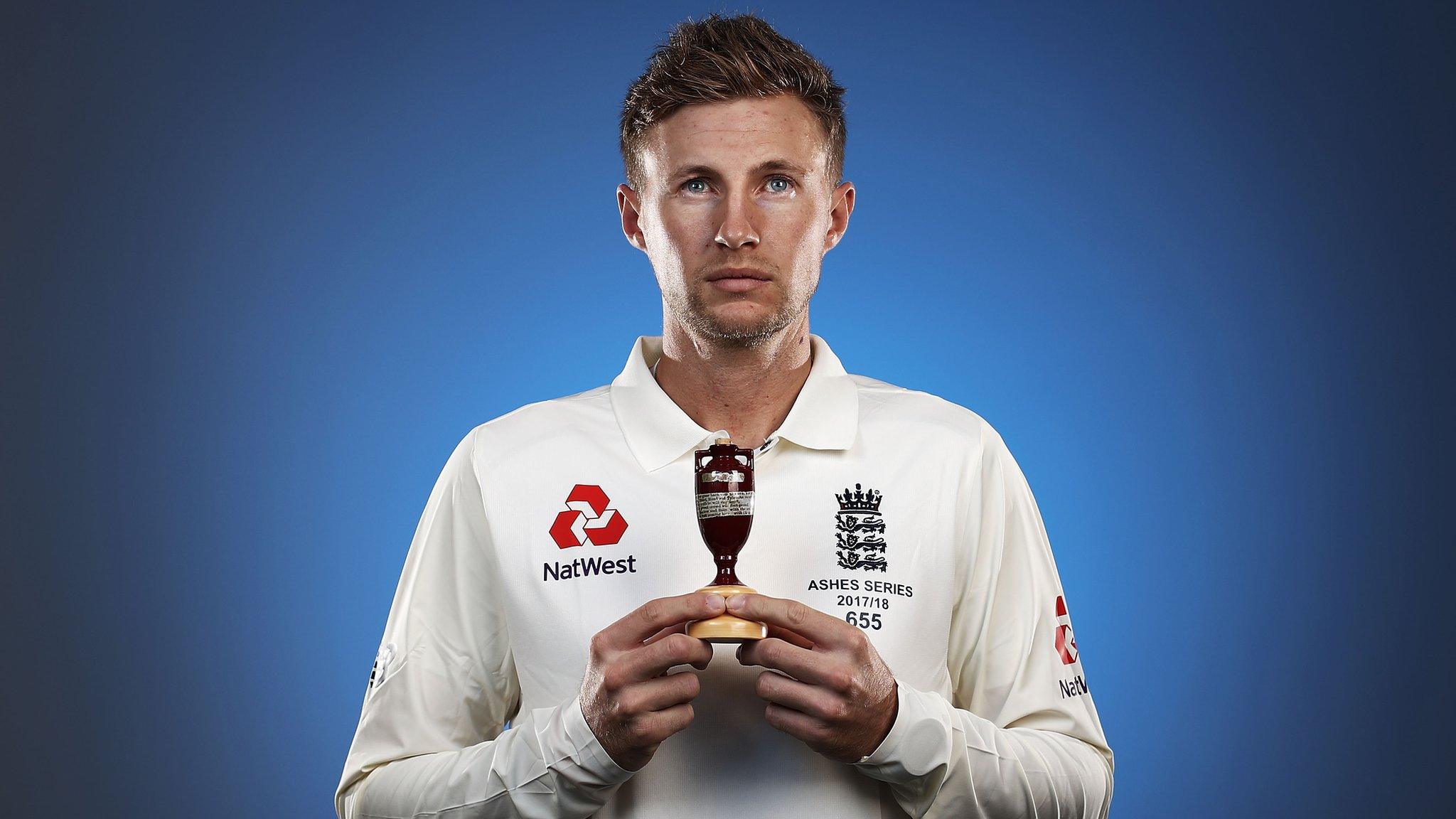
- Published15 May 2018
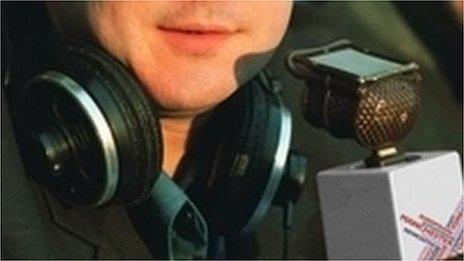
- Published18 October 2019
